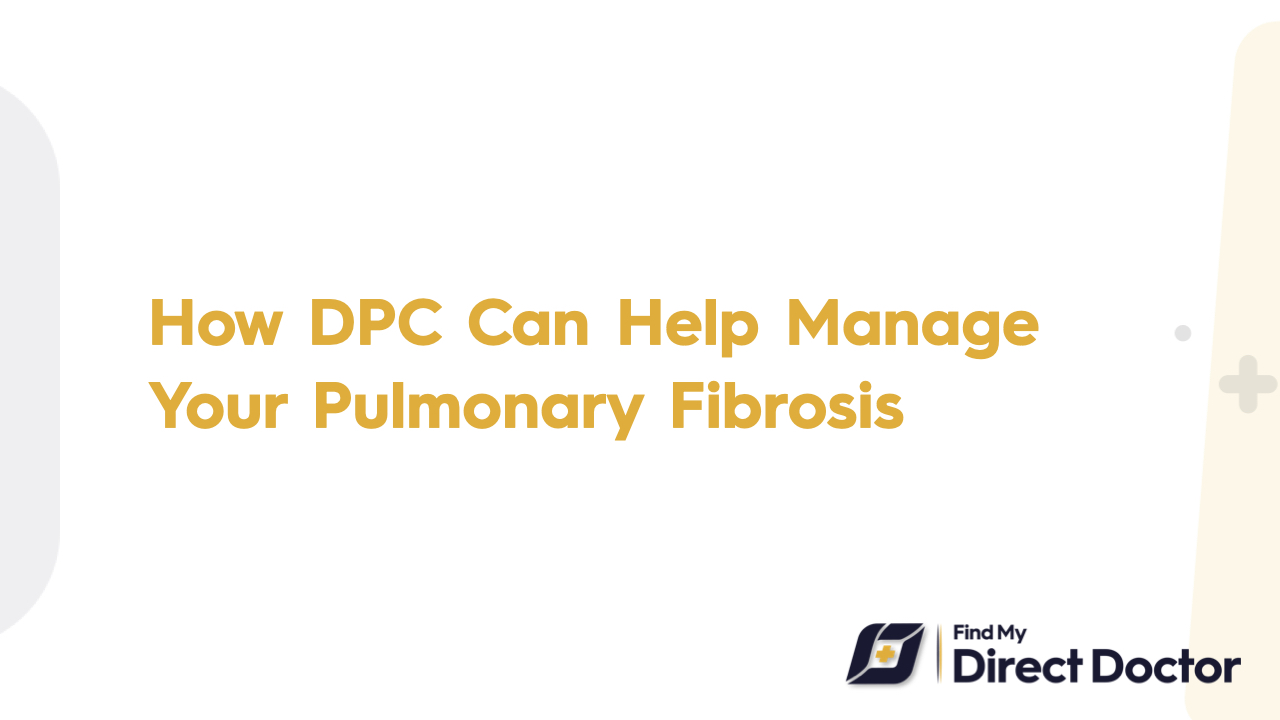



Breathing becomes progressively difficult when lung tissue is injured and scarred, a condition known as pulmonary fibrosis. The tissue becomes thicker as a result of this scarring, impairing the lungs' capacity to pump oxygen into the circulation. Breathlessness, particularly while exercising, a dry, chronic cough, exhaustion, and inadvertent weight loss are typical signs of pulmonary fibrosis. People may also have a bluish tinge to their lips or fingertips as the condition worsens, and occasionally the skin around their nails may alter shape—a disorder called clubbing.

A more proactive, individualized approach to controlling pulmonary fibrosis is provided by Direct Primary Care (DPC). Your doctor can keep a careful eye on your lung function in DPC, making sure that therapies like medicine or extra oxygen work. Regular, direct communication with your doctor enables more rapid modifications to your treatment plan, guaranteeing prompt interventions in the event that your symptoms worsen. In order to stop additional lung damage, DPC can also help arrange for the required referrals to specialists like pulmonologists and make sure you continue to follow preventative measures like immunizations and lifestyle changes.
DPC offers pulmonary fibrosis sufferers the benefit of continuous, individualized care that is tailored to your unique medical requirements. By keeping in constant contact with your healthcare professional, this method helps to guarantee that your condition is regularly monitored and treated as soon as possible. A more individualized treatment strategy is made possible by DPC, which is particularly crucial for long-term illnesses like pulmonary fibrosis. Additionally, it cuts down on appointment wait times, enabling prompt modifications to prescriptions or treatment regimens and providing patients with the assurance that their care is continuously monitored.
Developing a care plan that takes into account your particular health and lifestyle is part of the personalized management of pulmonary fibrosis in DPC. Whether it is through medication management, breathing techniques, or other therapies, your provider will collaborate with you to manage your symptoms. Preventing future deterioration requires early measures and routine monitoring of your lung function. You can talk about lifestyle modifications that could enhance your general well-being, like nutrition, exercise, and stress management, with your healthcare practitioner directly. Every element of your treatment will be tailored to help you maintain the best possible quality of life thanks to this individualized approach.
Previous Post